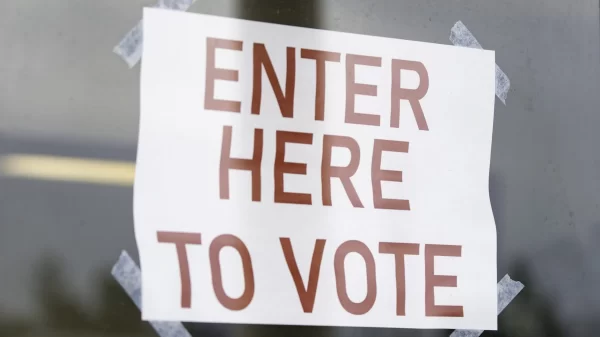By Chip Brownlee
Alabama Political Reporter
The Alabama State Senate voted overwhelmingly Tuesday in favor of a bill that would define racial profiling, prohibit law enforcement officers from engaging in it and require law enforcement agencies to track the race of those pulled over for traffic stops.
Sen. Rodger Smitherman, D-Birmingham, introduced the bill, which would require agencies, including local police departments, county sheriffs and ALEA, to file reports with the Attorney General’s Office that including the race and ethnicity of motorists stopped by law enforcement.
Agencies already submit reports about their traffic stops but will now need to include the race, ethnicity, color, gender and age of those stopped and the same statistics for the officer who performed the stop. The hope is that the statistics will allow the state to identify if there’s a problem and in which agencies and departments.
“That’s all you’re talking about, a check on a box,” Smitherman said.
Police are also required to submit the reason for the stop and the outcome, including if a warning or citation was issued.
The Attorney General’s Office will then have the discretion to recommend or order the withholding of funds as a penalty for law enforcement agencies that don’t comply with the reporting requirements or if the collected data shows a problem at the agency. The funding could be withheld until the agency completed racial profiling training.
Departments must also adopt profiling policies that prohibit stopping motorists based on their race, color, ethnicity, age, gender or sexual orientation.
Smitherman said the bill is needed because Alabama currently doesn’t collect statistics on racial profiling. Profiling — when an officer stops an individual based solely on their race or ethnicity — happens every day, Smitherman said in an exchange with state Sen. Larry Stutts.
“I’m a walking witness of this situation happening to individuals,” Smitherman said. “I can say it clearly that it actually happened to me in my own city. It’s happened to me twice from my own house.”
The Senate, dominated by Republicans, passed the bill by a vote of 27-0 after several amendments were brought to the floor. One amendment will require agencies to include all recorded injuries to law enforcement officers in the same annual report.
Stutts introduced the amendment because he said he was afraid the bill would send the wrong message to law enforcement and could negatively impact law enforcement agencies.
“I think there are a very small minority of people that may engage in racial profiling, that may stop people for the wrong reason but the vast majority of our law enforcement are officials are, No. 1, underpaid, No. 2, they risk their lives every day protecting us,” Stutts said.
While debating the bill, Smitherman, a black legislator, said he was repeatedly stopped by police near his house after visiting his daughter with his wife, a circuit court judge who is also black. Smitherman said he believed he was stopped because he and his wife were black people in a Lexus.
“If you’re DWB, then you’re subject to this problem,” Smitherman said. “That’s driving while black. … It happens on a daily basis.”
Smitherman said he has the utmost respect for law enforcement and believes tacking racial profiling opens up time for law enforcement officers to focus on individuals who really need to be stopped.
“The alternative to that is to have another St. Louis, to have another Baltimore,” Smitherman said, referring to protests and riots in American cities where white police officers shot and killed two black men, Michael Brown and Freddie Gray. “They’re going to react to it. Once they react to it there is a potential of having a situation with an astronomical effect.”
This is the second year the bill passed the state Senate but it was held up in the House during the final days of last year’s session.



















































